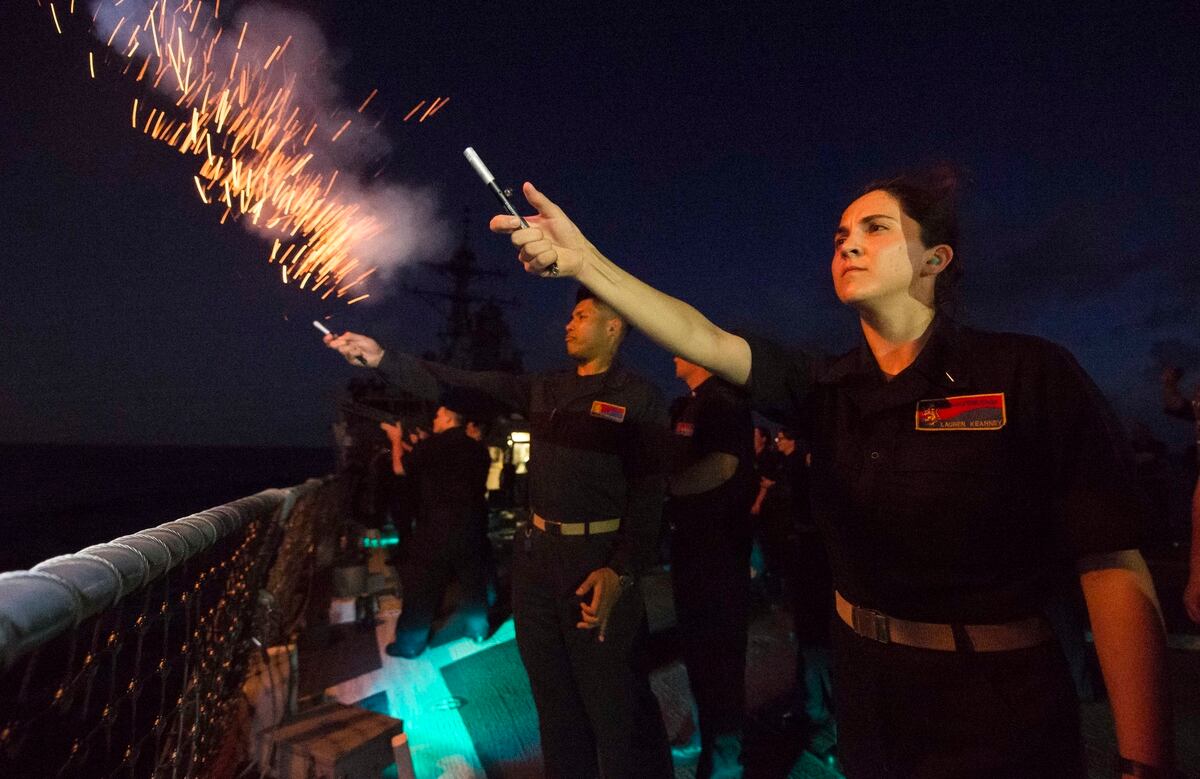In the wake of a revolutionary law passed by Congress in August, the Navy leads the rest of the military in reinventing how it recruits, trains and retains commissioned officers, lawmakers learned Wednesday.
Testifying before the Senate Armed Service Committee’s Personnel Subcommittee, the Navy’s chief of personnel, Vice Adm. Bob Burke, updated lawmakers on how far and fast the sea service has come in revamping the Defense Officer Personnel Management Act, the landmark 1980 legislation that’s come to be known as simply “DOPMA.”
Burke ticked off a list of innovations unleashed by the Navy over the past six months, including carving out alternative career paths for commissioned officers, changing some “up or out” rules to forestall mandatory retirements, pioneering new ways to recruit civilians with critical skills by offering entry jobs at higher pay grades and reordering promotion lists so that Big Navy can reward hard-charging leaders.
“We’ve used the merit promotion reorder on our O-6 and O-5 boards which met in January and earlier this month in February,” Burke said. “We’ll use it in our O-4 boards in April.”
The Navy now has the ability to rack and stack the top 15 percent of officers selected for promotion, ranking them and promoting in the order set by the board so that top performers pin on their rank and start drawing extra pay as soon as 15 months earlier than in past years.
Under the old rules, officers selected for the next rank were promoted based on an arbitrary numeric rankings affixed to them on the dates they were commissioned.
“It’s wildly popular, the idea of merit and getting promoted and paid a little earlier based on what you’ve done lately instead of your lineal number from way back when," said Burke.
RELATED

Sen. Thom Tillis, the North Carolina Republican who chairs the powerful Personnel Subcommittee, telegraphed that lawmakers were willing to give the Navy broader powers to continue the reforms, telling Burke that he was looking for “feedback" on “things that we’ve learned, need to adjust or expand, so please keep the suggestions coming.”
Burke told the subcommittee that the Navy’s new ability to blaze new career paths for officers who have been passed over from promotion or who want to opt out of the traditional “up or out” pipeline to command is being tested now.
He pointed to an ongoing pilot program for pilots that the Navy hopes will help boost retention rates for naval aviators.
“Our pilots repeatedly said, ‘Hey, if you could let us fly forever, we wouldn’t leave the Navy.’ So we’re calling them on it,” Burke said. “We’ll see if they really will.”
In November, the Navy picked 25 pilots for the “Permanent Flight Instructor Program,” which allows aviators the ability to become long-term teachers with few chances for them to rise into command positions.
Those 25 aviators would otherwise have left the service but putting them into the instructor billets means “25 fewer first term naval aviators that I don’t have to pull from the fleet now to go make flight instructors,” Burke said.
“So that’s helping out with my aviation retention program directly.”
RELATED

Beginning in Fiscal Year 2021, the Navy will begin to allow other officers to defer being reviewed for promotion while they participate in education programs such as the Rhodes and Olmsted Scholars, plus the Secretary of the Navy’s Tours with Industry initiative.
“Time-wise we’re not going to be able to use it until next year,” Burke said. “We’re really grateful. We’d like to get some run time with these and report back to you.”
The Navy still hasn’t leaped on what remains perhaps the most controversial reform tucked into August’s legislation: directly commissioning civilians with advanced skills — but no prior military service — at ranks as high as captain.
"We’ve put that into place, but not used it, yet,” Burke said.
Although the Navy initially planned to use the program to recruit proven high tech hands such as Silicon Valley software engineers or cyber warfare experts, Burke indicated that the service has expanded its focus.
Now, he said, the Navy is contemplating commissioning directly other “engineering duty officers” and civilian experts who can fill a “couple of restricted line programs.”
Mark D. Faram is a former reporter for Navy Times. He was a senior writer covering personnel, cultural and historical issues. A nine-year active duty Navy veteran, Faram served from 1978 to 1987 as a Navy Diver and photographer.




